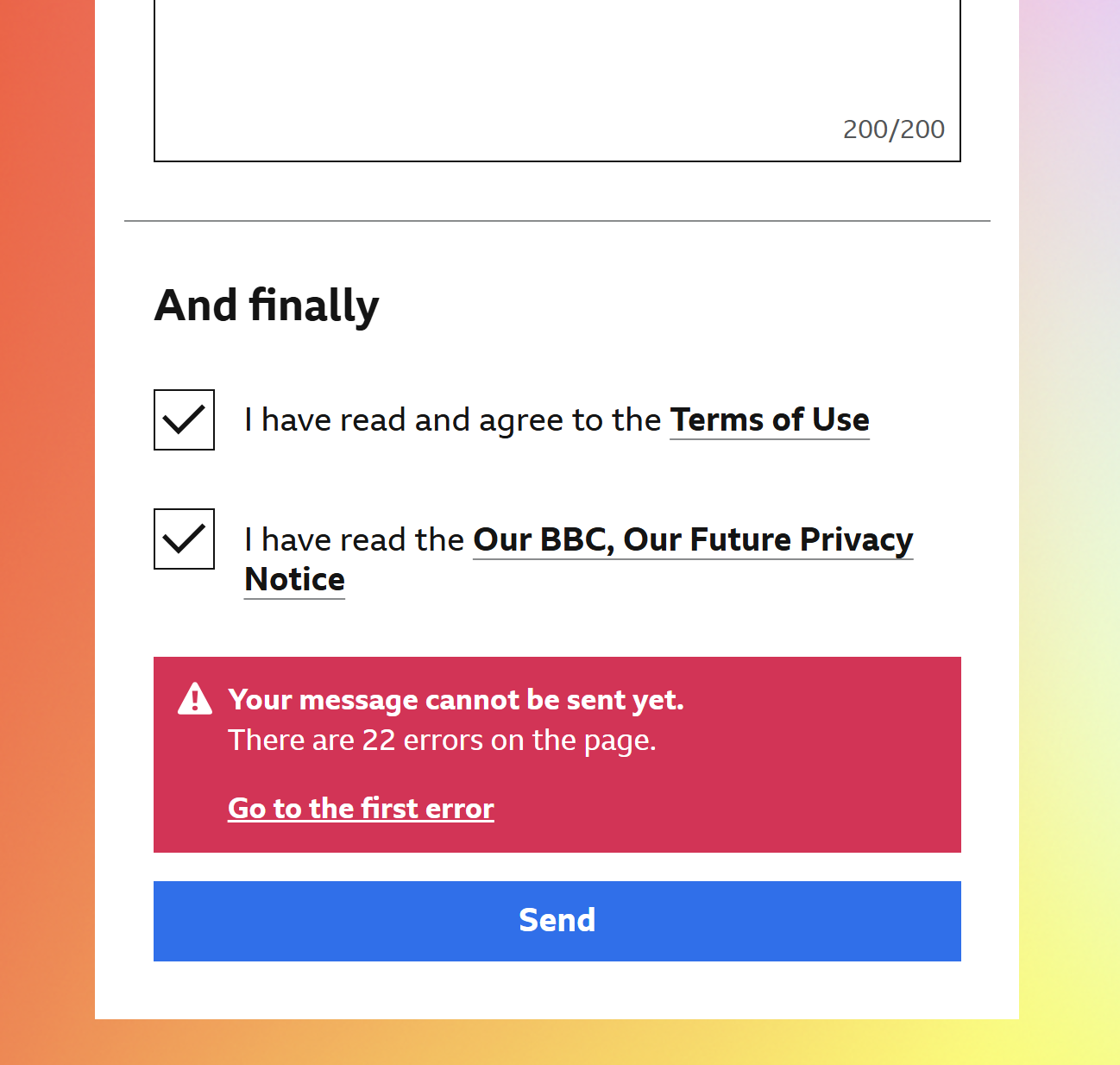Why Forcing Survey Responses Destroys Your Data
I received a survey from the BBC today. Probably like millions of other people.
Like everyone else, I don't respond to every survey in my inbox, but I actually wanted to participate in this one.
The survey was long, so (again, like everyone else) I instinctively allocated a reasonable amount of time to complete it by answering the questions where I had a clear opinion, and skipping those where I didn't.
To my surprise, I wasn't allowed to submit it like that.
-
❌ All the questions were mandatory.
-
❌ No skipping allowed.
In other words, I was forced to have an opinion about everything the BBC asked.
This is a very common mistake companies make when designing surveys: they assume that customers are as invested in the questionnaire as the team that designed it. Spoiler alert: they're not.

If you force people to answer every question, even when they don't have a real opinion, you are forcing them to give random answers.
- ❌ Random responses contaminate your data.
- ❌ Contaminated data will ruin your analysis.
- ❌ The whole project ends up (or should end up) in the bin, along with the budget you spent on it.
Instead:
-
✅ Make sure you don't force respondents. You can't force real feedback.
-
✅ Prioritise the quality of responses, not the quantity.
-
✅ Only make a question mandatory if it's critical to the logic of the survey.
It's a hard lesson that many companies, including, sadly, today, the BBC, still haven't learned.

About the Author
Jaime Valle is a senior Customer Experience (CX) consultant who helps organisations see their business through their customers' eyes, turning customer insight into measurable growth.
Connect on LinkedInRelated Articles
The Hidden Bias in NPS® Surveys: Why Colour-Coding Can Distort Customer Feedback
Explore how colour-coding in NPS® surveys distorts customer feedback and affects organisational insights.
Read more →The Impact of Ambiguous Survey Questions: Ensuring Clear Data for Effective CX Insights
Explore how clear survey design enhances customer experience data accuracy and drives effective insights for better decision-making.
Read more →Think before surveying customers
Learn how to effectively gather feedback through surveys and other effective methods to improve customer experience, gaining valuable insights.
Read more →